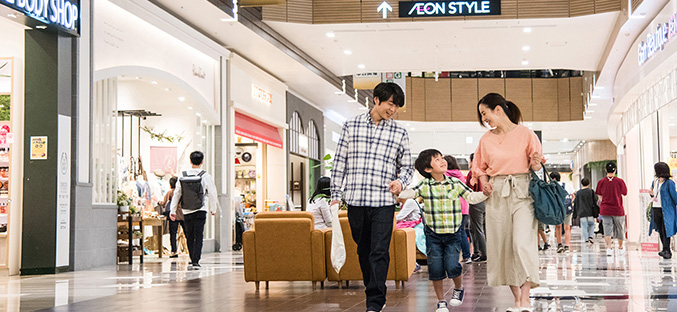Boxed, the New York-based online retailer that sells and delivers bulk-sized groceries, makes its foray into Asia by partnering with Aeon, one of Asia’s largest brick-and-mortar retail operators.
Unlike its consumer-focused business in the U.S., which has been described as “Costco for millennials,” Boxed is exporting its nascent software-as-a-service solution to Aeon in Malaysia. As part of the tie-up, the American startup will create an end-to-end e-commerce solution to aid Aeon’s digital transformation, which includes a storefront platform and inventory-picking software. Boxed declined to disclose the value of the deal but said it’s in the “several tens of millions of dollars.”
Malaysia, which is home to more than 30 million people, is Boxed’s first stop in Asia and Aeon’s biggest market outside its home base of Japan. Aeon employs some 10,000 staff in Malaysia, where it has pledged to spur local employment amid the pandemic through its virtual mall.
With Boxed’s technology, Aeon customers will have the flexibility to pick their chosen number of items and have them shipped in a box to their doorstep. Boxed doesn’t intend to provide last-mile delivery in Asia but will instead tap local courier services. Grab, for instance, is a potential partner, Boxed co-founder and CEO Chieh Huang told TechCrunch in an interview.
Foray into Asia
Through a mutual friend, Huang got in touch with Aeon, which was established 263 years ago in Japan and today operates 21,000 locations, from clothing chains, convenience stores to general merchandise stores, across 14 countries.
Working with Aeon was challenging at first, Huang said, as there were differences not only in time zones but also in cultural norms due to Aeon’s colossal size. It took numerous in-person meetings and international calls to eventually bridge the gap.
The partners are also exploring opportunities to work together in other Southeast Asian markets. Boxed will keep its enterprise-facing angle by licensing software to local retailers rather than expanding its consumer business to the region, which is already crowded with established e-commerce players like Shopee, Lazada and Tokopedia.
Digitizing traditional retailers

An Aeon mall / Source: Aeon
Prior to the SaaS deal, Aeon was already an investor in Boxed. In 2018, it led the e-commerce startup’s $111 billion Series D funding round so it could tap Boxed’s intel in retail digitization. Huang believed his company was chosen because it was one of the few e-commerce operators alongside JD.com and Amazon that have full control over the supply chain and users’ purchasing experience.
Boxed builds its own warehouse robots as well because “we are able to do it much cheaper ourselves than buying the robots,” argued Huang. “Most of the robots are very advanced because they are not able to control the environment. We own the fulfillment center so we can delete a lot of the things that are expensive, such as Lidar.”
Furthermore, the startup’s “box” model helps flat out the costs of shipping with each incremental item delivered, giving the platform a price advantage, the founder said.
Future of Boxed
Founded in 2013, Boxed has accumulated over seven million registered users. With a staff of 500 employees across the U.S., it’s now generating hundreds of millions of dollars in annual revenue.
In all, Boxed has raised over $270 million. Since its last financing round in 2018, the company has had little publicity. During that time Boxed was focused on fine-tuning its retail software solution, which has become its second and more profitable line of business. The firm’s margin is improving every year and getting close to profitability in 2021, said Huang. And like other e-commerce companies, Boxed saw growth in user demand through the pandemic.
Going public is “always on our mind,” said Huang. “I think it will surprise a lot of people how close we are to profitability.”
Reuters reported in September that Boxed was weighing up “a sale or going public through a merger with a blank-check acquisition company that could value it at around $1 billion.” To that, the startup gave a somewhat indefinite response:
“As a result of the shift to online, we’ve also seen increased demand from many parties looking to partner with us to accelerate growth both in our marketplace and new SaaS business. We are thoughtfully considering these options when it comes to the long-term success of Boxed.”
from TechCrunch https://ift.tt/3qRCGW6
via IFTTT
Comments
Post a Comment